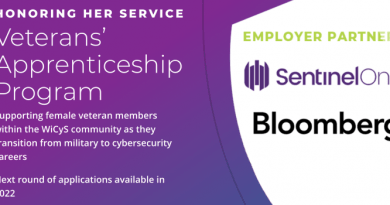Five Key Questions Before You Negotiate
How successful are you at negotiating with yourself? At first, this may sound like an odd question to ask. Yet, we undertake dozens of negotiations with ourselves every day.
Should I eat that cupcake? I just ran five miles and had fruit for breakfast, so why not?

How about your negotiations with your family and friends? Do you find that you need to have your way or do you give in to a particular person’s wishes every time?
If you have a pet, you know all too well how clever your pet can be when it comes to negotiating for food or treats.
Every day, I negotiate with my two beautiful Shih Tzu dogs. Will they eat what I put out for them or will they act aloof in order to get an alternative? Dry kibbles or chicken delight?
Are you reading the situation correctly? Often things are not what they seem in negotiations.
In our professional world, as an executive, employee, entrepreneur or job seeker, our negotiations become much more impactful because of how we look at them and approach them. Although we often put greater emphasis on professional negotiations than those we have with ourselves, family, friends or pets, the same preparation and skills apply.
Here are the five key questions to ask before you negotiate:
1. Do the parties on both sides have the right to compromise?
Compromise is an alternative to competing, yielding or problem solving.
If the people negotiating are “paper tigers”, with no right or authority to compromise, then you and your company may need to negotiate all over again with the decision-makers.
2. Have you anticipated the other side’s strategy?
Now that you’ve prepared for your side of the negotiations you are ready to go, right? Not so fast.
If you have not considered what will be important to the other side, then you are not fully prepared. If you are ready to address what your counterpart is likely to argue, you are ready to go.
In an ongoing business relationship, you may be aware of your counterpart’s priorities from prior negotiations. You can fine-tune your preparation by looking at the pros and cons of a deal.
3. Do you understand the pros and cons of each side?
We assess the pros and cons when making decisions every day. Personally and professionally, we need to be prepared for the other side’s arguments before we enter negotiations.
If you are aware of problem areas, e.g., late deliveries or inconsistent service, then you should assess the pros and cons in advance. Consider how you can maintain this relationship by being diplomatic in your negotiations and illustrating improvements in those areas.
It is likely that the other side will come prepared to point out the flaws in your arguments. If you are looking for a win-win, with both sides gaining some advantages, then you will need to know the other side’s flaws as well. If not, they may be looking for a win-lose with you being the loser.
If this is an international deal, then you need to understand the customs and practice of the country you are visiting and how your own customs and practice may be viewed. This information is readily available online.
4. What will body language tell you?
Commanding body language is a matter of awareness, self-control and practice.
If you are attuned to body language, you will be able to interpret a great deal about what the other side is thinking and feeling as they give off nonverbal signals during the negotiations.
Keep in mind that your expression, hands, stance, posture and voice can make or break a deal by giving off signals of nervousness or doubt.
Research any cultural norms if you are negotiating in international markets (e.g., eye contact, handshake, handing out and writing on business cards).
Like any performance, rehearsing is time well spent.
5. What is your deal breaker?
Have you considered the button that must be pushed in order for you to walk away from the deal? Every organization needs to define matters that are non-negotiable and whether the can walk away from making a deal.
Negotiations are a part of your lifelong journey. In order to succeed, you need be prepared and focused. Ideally, you want to get it right the first time because you may have only one opportunity.
This post was originally published on Entrepreneur’s Questions and has been modified for publication on Linked In.
Photo copyright© CASUDI




